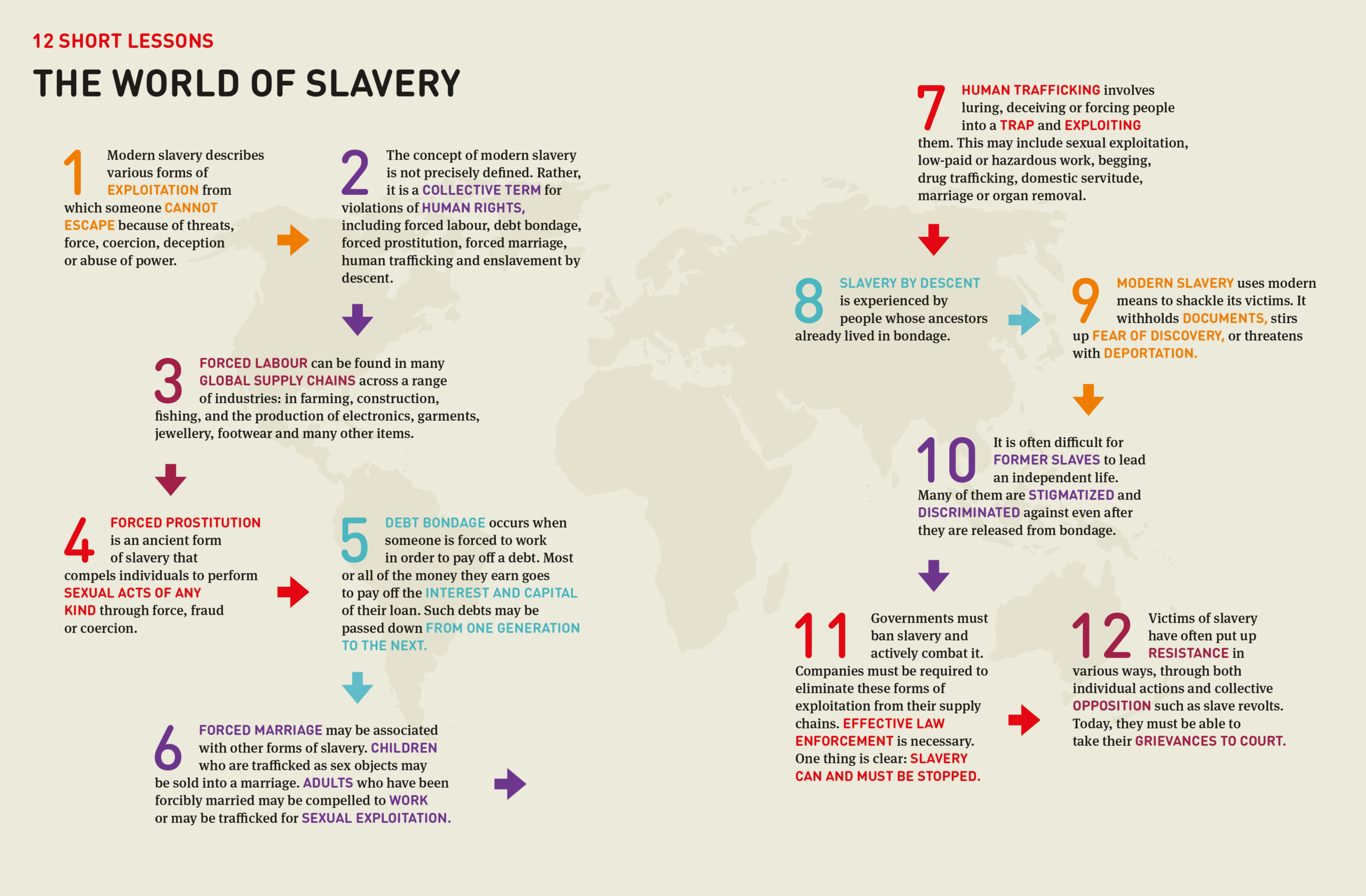The Atlas of Enslavement
We can end modern slavery and prevent it in the future
The Atlas of Enslavement is a publication of the Rosa Luxemburg Foundation. It aims to bring the issue of modern slavery higher up the international political agenda. Because: We need a global framework for joint action to achieve the abolition of slavery worldwide.
Slavery at a glance
The word “slave” is a very negative one: it has connotations of hard toil, compulsion, punishment and exploitation. In the past, warring peoples would capture their opponents and force them to work. The word for the captured opponents came to mean “slave”. The English word “slave” itself is one example. Read more
12 Lessons on Slavery

The word “slavery” conjures up images of people in chains being forced onto ships in Africa and transported across the globe. We rarely think of slavery as having anything to do with the modern world and its living and working conditions. Slavery has indeed been abolished as a legal form of labour worldwide. Article 4 of the 1948 Universal Declaration of Human Rights states: “No one shall be held in slavery or servitude; slavery and the slave trade shall be prohibited in all their forms.” Read more
A publication by RLS Geneva
